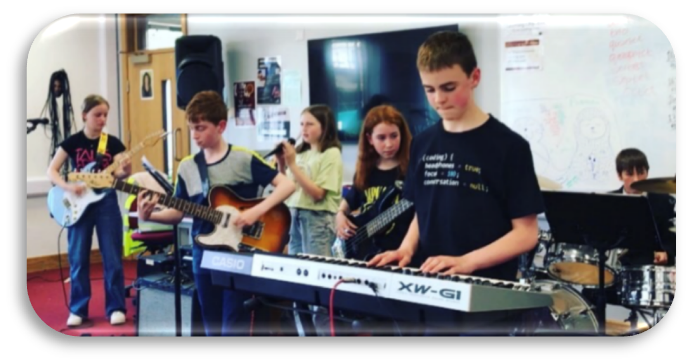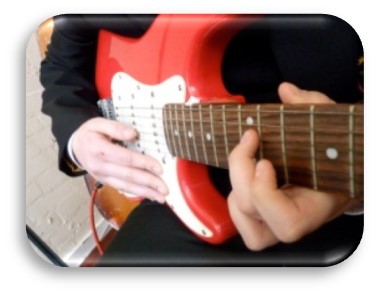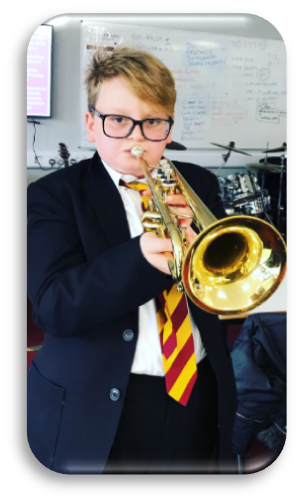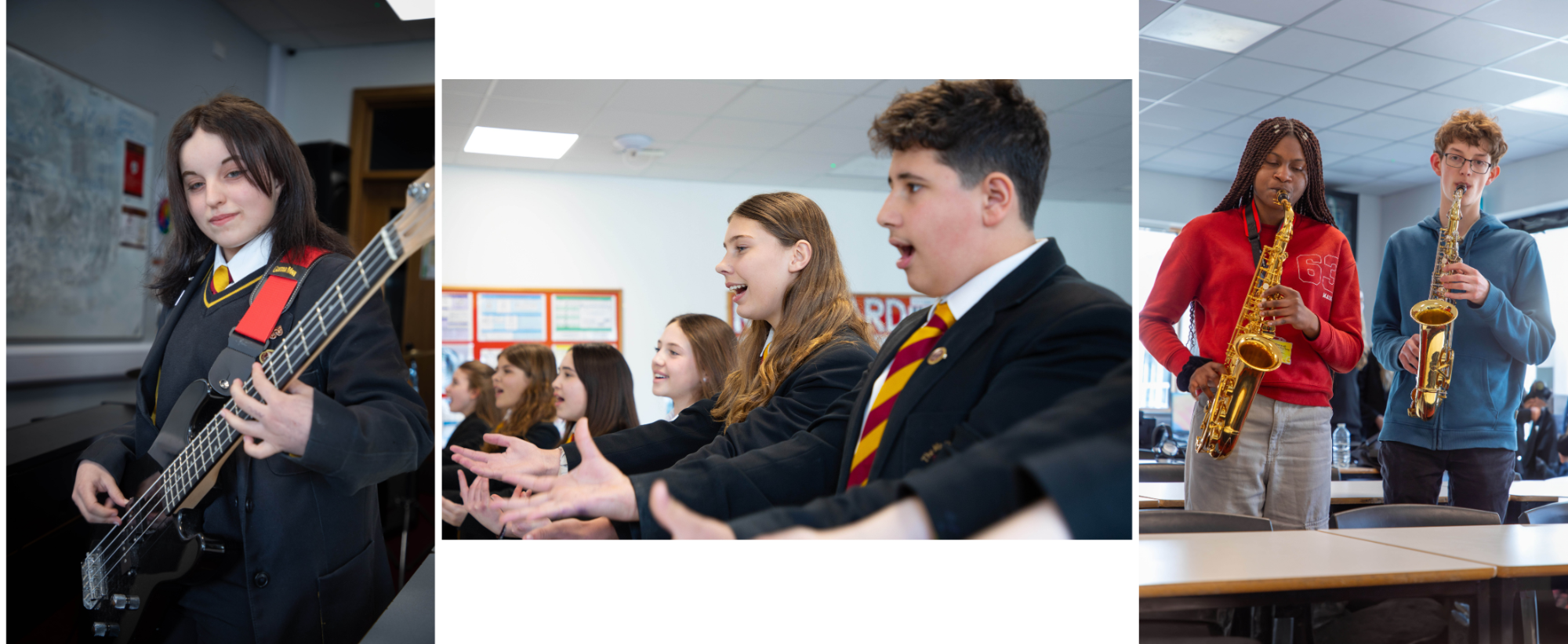Music - Key Stage 4

Students who choose to study Music at key stage 4 will follow the Eduqas GCSE Music course.
The course consists of three components:
- Performing
- Composing
- Appraising
The types of tasks that are completed are:
- Engaging critically and creatively with a wide range of music.
- Developing an understanding of the place of music in different cultures and contexts.
- Reflecting on how music is used in the expression of personal and collective identities.
The course is assessed through:
- Controlled Assessment - students will complete two non-examined components, making up 610% of the final grade.
- Component 1: Performing (30%): Students will perform a
 minimum of two pieces, one of which must be an ensemble performance of at least one minute in length. The other piece(s) may be either solo and/or ensemble. The total performance must be between 4 – 6 minutes long.
minimum of two pieces, one of which must be an ensemble performance of at least one minute in length. The other piece(s) may be either solo and/or ensemble. The total performance must be between 4 – 6 minutes long. - Component 2: Composing (30%): Students will compose two pieces, one of which must be in response to a brief set by the examining board and completed in the autumn term of Year 11. For the second composition, learners will set their own brief. In total, the duration of the compositions must be between 3 – 6 minutes long.
- Examination - A 1 hour 15 minute written paper worth 40% of the final grade which includes a listening element. There are eight questions in total, two on each of the four areas of study: musical forms and devices, music for ensemble, film music, popular music. Two of the eight questions will be based on extracts set by the examining board.
In the words of Albert Einstein: 'The greatest scientists are artists as well'. Music is part art, part science! Which means it will help students to build on their problem-solving, research, planning, analytical and critical thinking skills, as well as developing their creativity.
Music encourages discipline, composure under pressure, time management, communication, team and individual working ability - all gained from practise and performing. These skills are in great demand from employers across a range of industries and is why GCSE Music is very highly regarded.
Music graduates have a wide range of career options available to them both inside and outside the industry including performer, teacher, administrator, songwriter, conductor, composer, recording engineer, manager, promoter, or music publisher.
There are also more jobs than ever in music business related areas, such as careers in digital marketing, public relations, social media, technology, ticketing and merchandising. It is also common to find music graduates in consultancy, finance, banking, music therapy and legal jobs.

Curriculum Implementation
Click here to view the curriculum implementation overview for Music at key stage 4.
Curriculum Timelines
Click here to view the curriculum timeline for Music.
Curriculum Learning Journey
Click here to view the curriculum learning journey for Music.
Knowledge Organisers
Click on the link below to view some knowledge organisers for Music:
Click here to return to the Music page.
